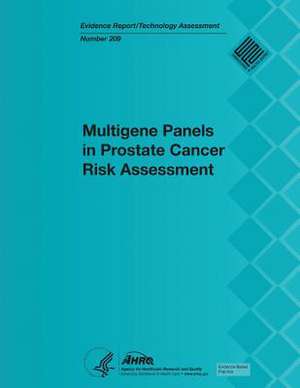Multigene Panels in Prostate Cancer Risk Assessment
Autor U. S. Department of Heal Human Services, Agency for Healthcare Resea And Qualityen Limba Engleză Paperback
Preț: 152.75 lei
Preț vechi: 160.80 lei
-5% Nou
Puncte Express: 229
Preț estimativ în valută:
29.23€ • 30.59$ • 24.33£
29.23€ • 30.59$ • 24.33£
Carte disponibilă
Livrare economică 10-24 martie
Preluare comenzi: 021 569.72.76
Specificații
ISBN-13: 9781483935232
ISBN-10: 148393523X
Pagini: 170
Dimensiuni: 216 x 280 x 9 mm
Greutate: 0.41 kg
Editura: CREATESPACE
ISBN-10: 148393523X
Pagini: 170
Dimensiuni: 216 x 280 x 9 mm
Greutate: 0.41 kg
Editura: CREATESPACE
